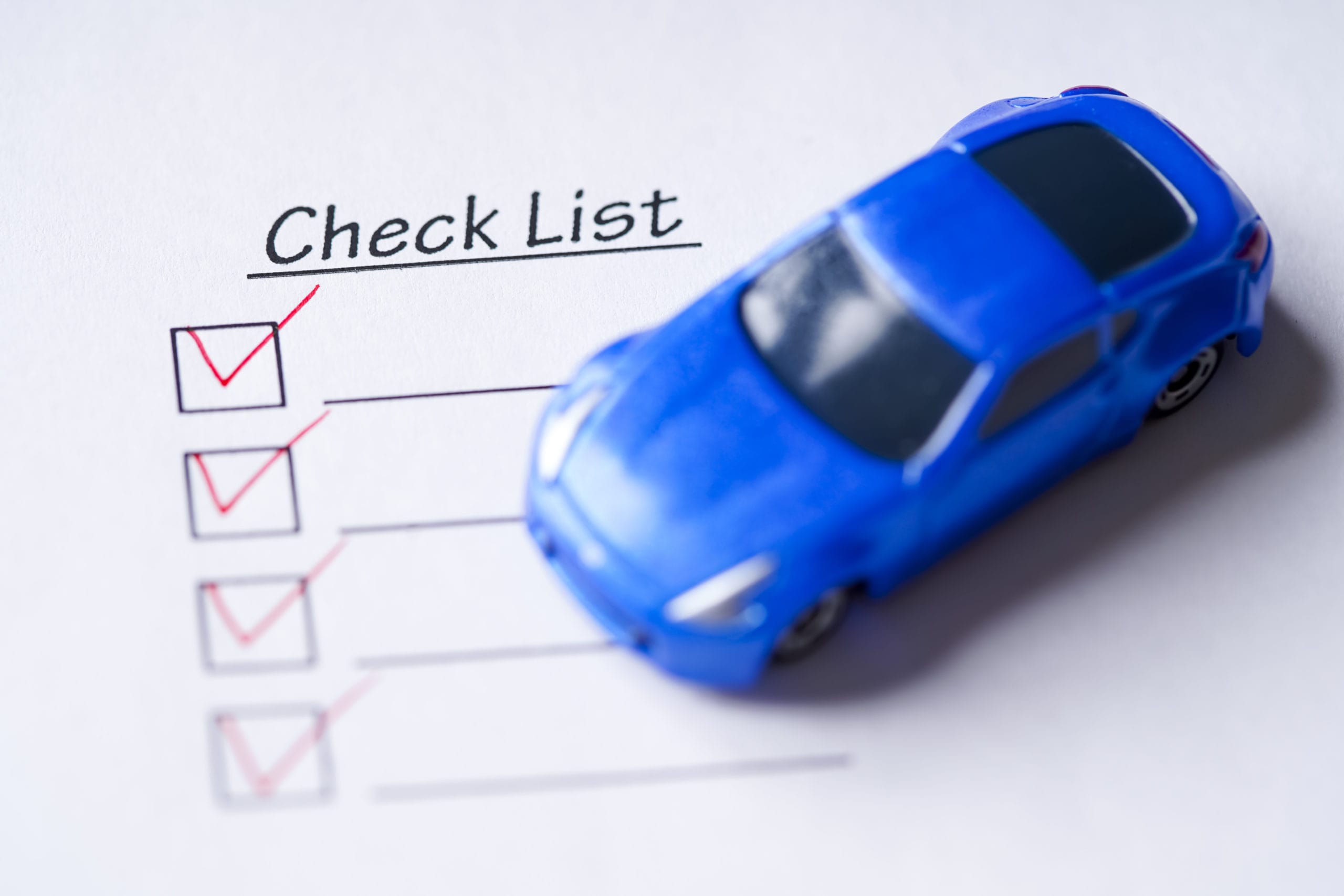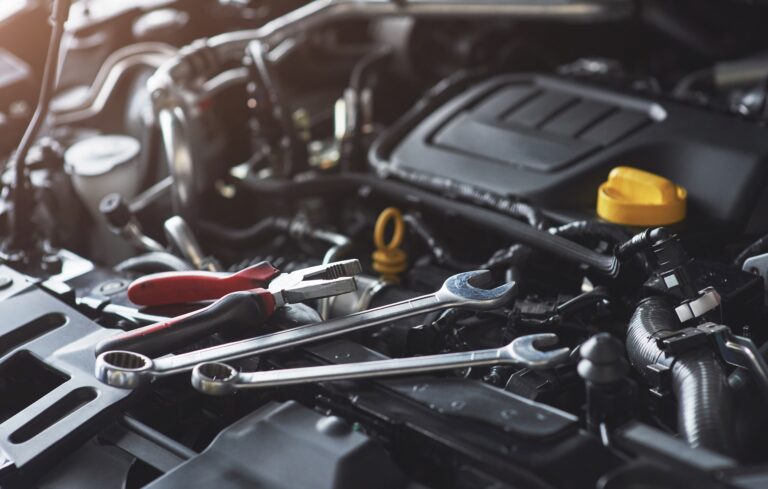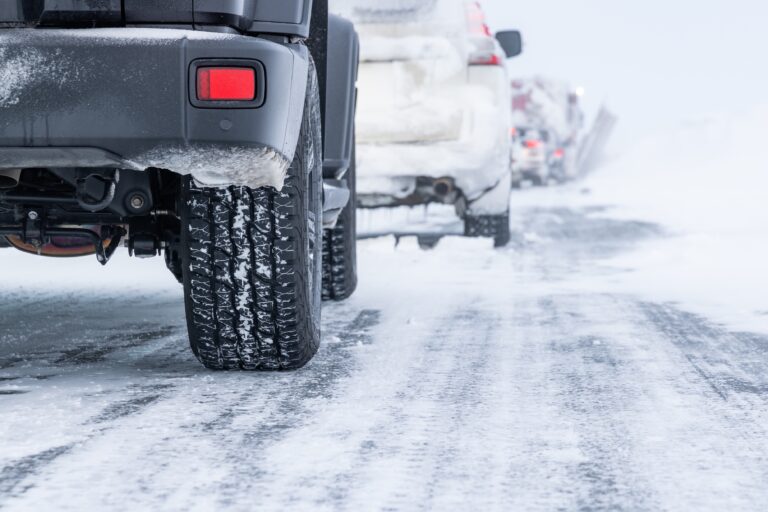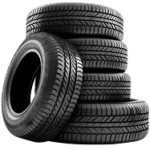Your Road Trip Inspection Checklist

Loading up the roof rack, stocking up on junk food, and heading out with your buddies or family for an exciting journey is a certain recipe for fun and lifelong memories. But before you shift into drive and hit the open road, there’s one crucial thing to do first: make sure your car is road-trip ready. You might have your heart set on 1,000 miles of highway, but if your vehicle isn’t regularly inspected and maintained, or there’s a potential issue lurking, you might be setting up camp a little closer to home than you’d like.
Whether you’re heading across the state or the country, a thorough car checkup helps avoid unexpected breakdowns and ensures a smoother, safer journey. In this blog, we’ll break down a quick road trip inspection checklist to help ensure a safe and enjoyable adventure.
Before You Hit The Road
Nothing ruins a vacation like car trouble on the highway, especially when you’re in an unfamiliar or remote location. A quick search for a nearby auto shop might get you last-minute help, but the best way to avoid trouble is to plan ahead. A few extra minutes of due diligence can save you from potentially being stranded later on. Use this vehicle inspection checklist to get your car in top condition before departure.
Check Tires & Brakes
Start with your tires. Check tread depth, tire pressure, and signs of uneven wear. Worn or underinflated tires can reduce fuel efficiency and increase the risk of a blowout. Your vehicle’s recommended tire pressure, or PSI, should be listed inside the driver’s side door and on the tire wall itself. When checking tire tread, perform the “penny test” to ensure the tread depth is adequate. Here’s how it’s done:
- Place a penny inside your tire’s groove with Lincoln’s head facing down toward the tire.
- If the tire covers the top of Lincoln’s head, the tread is still good. If his head is visible, the tire has worn below 2/32 of an inch, which is considered worn and requires replacement.
Tires with low tread, uneven wear, or those that are unable to maintain consistent pressure will need to be replaced. Visit your nearest Telle Tire for a wide selection of new tires for any vehicle and expert tire installation to ensure a safe drive.
Also, don’t forget the spare! If your vehicle is equipped with a spare tire, be sure to check its condition. If your vehicle is not equipped with a spare tire, ensure you have an emergency plan and safety equipment in case you need to pull over. Alternatively, consider investing in a spare tire that fits your car.
Next, inspect your brakes. If you hear squealing or grinding, or if the brake pedal feels soft when you apply pressure, it’s time to have them checked. Responsive brakes are essential for safe travel, enabling you to stop quickly when needed. If your vehicle’s brakes are bad, you run the risk of potentially serious accidents, especially if traveling at higher speeds on the highway. Make safety a priority and bring your vehicle to Telle for expert brake repair and service at the first sign of a potential issue.
Test Your Battery & Lights
Long hours of driving and summer heat can put extra strain on your vehicle’s battery. If your battery is more than three years old, it’s advisable to have it tested before embarking on a road trip. Signs of a failing battery include:
- Slow engine cranking
- Dim lights
- The need for frequent jump-starts
If your battery tests fine, it may simply need a thorough cleaning, as corroded terminals can interfere with its performance. Clean them if needed, or have a professional check your electrical system.
Another vital piece of your electrical system is your vehicle’s lights. The headlights are crucial for visibility and safety, especially when driving at night or in adverse weather conditions. Check that all headlights, tail lights, brake lights, and turn signals are fully functional. If a bulb is dim or flickering, replace it ahead of time to avoid any roadside surprises.
Top Off Fluids & Change Filters
Your vehicle’s fluids are like the lifeblood of your car—they keep everything running smoothly. It’s a good idea to make sure you’re not low on oil, transmission fluid, power steering fluid, brake fluid, and coolant. Pop the hood and give the following a look:
- Check engine oil level and condition. If your oil is dark or gritty, schedule an oil change before your departure date.
- Top off the coolant and transmission fluid. The coolant should be at the proper level to prevent engine overheating, and your transmission fluid should be clean and at the correct mark for optimal functionality.
- Top off the brake fluid and power steering fluid. Neglecting these can lead to poor vehicle performance or even create dangerous driving conditions.
When topping off any fluids, be sure to keep an eye out for potential fluid leaks, indicated by pooling liquids under the vehicle or consistently low fluid levels.
While under the hood, consider replacing your engine air filter and cabin air filter. A clean engine air filter boosts fuel economy and power, while a fresh cabin filter helps you breathe easier, especially on dusty or pollen-heavy routes.
Check or Replace Wipers & Washer Fluids
Rain, mud, and insects can quickly dirty your windshield, making visibility a major concern. Wiper blades should be soft and flexible, not cracked or torn. If they leave streaks or skip across the glass, it’s time for new ones.
Don’t forget to top off your windshield washer fluid. It’s easy to overlook, but running out mid-trip can leave you squinting through a dirty, bug-splattered, or smeared windshield. Consider using a summer-formula fluid that helps break down road grime and insects more effectively.
Check Your Car’s Air Conditioner
Air conditioning is more than a comfort feature—it helps keep you alert and focused while driving in the heat. Before your trip, test the A/C at all settings. If the airflow is weak or the temperature isn’t as cool as it used to be, there may be a refrigerant leak or compressor issue. If your vehicle is blowing cool air but not cold air, you might have an issue with your cooling fan or radiator, or you may be due for a new air filter.
Also, pay attention to any musty odors coming from the vents, which can signal mold or mildew in the system. A quick A/C inspection can make a big difference in your comfort, especially during multi-hour drives in the summer sun.
Emergency Kit & Essentials
Even with the most meticulous maintenance, checking, and prep, unexpected situations can still result in a roadside emergency. That’s why it’s smart to keep a roadside emergency kit in your trunk. Ensure it’s stocked with major essentials, including:
- Jumper cables
- Flashlight with extra batteries
- A multi-tool and a basic tool kit
- Road flares or reflective triangles for visibility
- Quart of oil
- First-aid kit
- Tire inflator and sealant
Depending on where you’re venturing, other helpful items may include an ice scraper, bottled water, non-perishable snacks, blankets, and a portable phone charger. For a comprehensive emergency car kit checklist, refer to this guide from Ready.gov.
Snacks & Good Music
While car safety is crucial, don’t forget to have fun! Load up on easy-to-eat snacks like trail mix, fruit, or protein bars to keep energy levels up between stops. And perhaps more importantly, create a fun road trip playlist for everyone to enjoy. Whether you’re into podcasts, audiobooks, or classic road tunes, good music makes the miles fly by.
Common Questions About Summer Road Trip Prep
How Do I Know if My Car is Ready for a Road Trip?
To determine if your car is road-trip ready, schedule a full vehicle inspection at Telle Tire & Auto Centers. A technician will inspect your tires, brakes, battery, fluid levels, filters, lights, and other components. If everything is functioning and your car has no warning lights, error codes, or performance issues, you’re likely good to go and can drive away with peace of mind. If you have any service performed, be sure to test drive it for any odd sounds or handling issues before hitting the road.
Can Hot Weather Affect My Car’s Performance
Yes, hot temperatures can significantly impact your car. Heat can cause tires to expand, increasing the risk of blowouts, strain your battery, and make your engine work harder, especially when fluids like coolant or oil are low. It’s also harder for air conditioning systems to keep up in extreme heat. That’s why a pre-trip inspection is crucial during the summer travel season.
What Should I Do If My Check Engine Light Comes On Before a Road Trip?
If your check engine light turns on before your trip, don’t ignore it. Schedule a diagnostic check immediately. It could be a minor issue, such as a loose gas cap, or something more serious, like engine misfiring or sensor failure. Driving long distances with an unresolved engine problem could lead to a breakdown or costly damage.
Where Can I Get a Road Trip Car Inspection Near Me?
You can get a road trip car inspection at any Telle Tire & Auto Centers location. Our certified technicians provide comprehensive pre-trip inspections, including checks of tires, brakes, fluids, battery, A/C system, and more. With convenient locations and trusted service, Telle ensures your vehicle is safe, reliable, and ready for the road ahead.
Schedule Your Road Trip Inspection Today
Planning ensures your vehicle is ready, but it also lets you focus on making memories once you’re behind the wheel. Regular maintenance is crucial for keeping your car on the road through every summer adventure and beyond. Giving your vehicle a thorough check before a long trip can help minimize the chance of car troubles when you’re hundreds or thousands of miles from home.
Visit your nearest Telle Tire & Auto Centers location to ensure your car is equipped for the journey. Our expert team of technicians can perform a thorough maintenance check and give you a confident green light for your next road trip.

Take it to telle
Stay Safe with a Tire Check from Telle Tire
Worried about your tread depth or tire condition heading into the summer storm season? Take it to Telle. Our expert technicians can assess your tires, check pressure levels, and recommend replacements when necessary, helping you stay in control regardless of the weather conditions. Stay safe, stay prepared, and if you’re unsure about your tires, schedule a visit with your nearest Telle Tire & Auto Centers location today.
Stay Informed
Recent Articles from Telle Tire

What Happens to Your Car When You Delay Scheduled Maintenance
It’s easy to push routine car maintenance down the to-do list. Oil changes, wheel alignments, tire rotations, fluid checks, battery tests, and suspension inspections often feel…

Winter Driving in Missouri: Top 7 Mistakes Drivers Make & How to Avoid Them
Winter in Missouri is anything but predictable. Drivers can experience early-season frost, freezing fog, sudden snow bursts, black ice on bridges, and wide temperature swings, sometimes…

Top Scenic Drives in Missouri This Winter
Winter transforms Missouri into a stunning landscape of snow-covered forests, frosted bluffs, quiet river valleys, and peaceful state parks. Whether you’re near St. Louis or Kansas…
